第37章 II
But in practice a citizen is defined to be one of whom both the parents are citizens; others insist on going further back; say to two or three or more ancestors. This is a short and practical definition but there are some who raise the further question: How this third or fourth ancestor came to be a citizen? Gorgias of Leontini, partly because he was in a difficulty, partly in irony, said- 'Mortars are what is made by the mortar-makers, and the citizens of Larissa are those who are made by the magistrates; for it is their trade to make Larissaeans.' Yet the question is really simple, for, if according to the definition just given they shared in the government, they were citizens. This is a better definition than the other. For the words, 'born of a father or mother who is a citizen,' cannot possibly apply to the first inhabitants or founders of a state.
There is a greater difficulty in the case of those who have been made citizens after a revolution, as by Cleisthenes at Athens after the expulsion of the tyrants, for he enrolled in tribes many metics, both strangers and slaves. The doubt in these cases is, not who is, but whether he who is ought to be a citizen; and there will still be a furthering the state, whether a certain act is or is not an act of the state; for what ought not to be is what is false. Now, there are some who hold office, and yet ought not to hold office, whom we describe as ruling, but ruling unjustly. And the citizen was defined by the fact of his holding some kind of rule or office- he who holds a judicial or legislative office fulfills our definition of a citizen.
It is evident, therefore, that the citizens about whom the doubt has arisen must be called citizens.